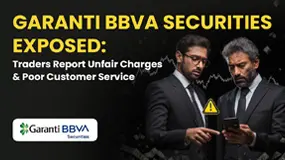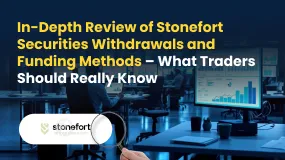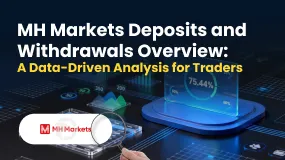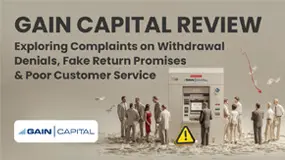简体中文
繁體中文
English
Pусский
日本語
ภาษาไทย
Tiếng Việt
Bahasa Indonesia
Español
हिन्दी
Filippiiniläinen
Français
Deutsch
Português
Türkçe
한국어
العربية
Explainer: What is a Global Minimum Tax and How Could it Affect Companies, Countries?
Abstract:Treasury Secretary Janet Yellen has thrown the weight of the U.S. government behind a push for a global corporate minimum tax rate, possibly carving a path to a long-sought deal updating international tax rules for the first time in a generation.

Yellen said on Monday that she is working with G20 countries to agree on a global minimum, which she said could help end a “30-year race to the bottom on corporate tax rates.”
WHY A GLOBAL MINIMUM TAX?
Major economies are aiming to discourage multinational companies from shifting profits – and tax revenues – to low-tax countries regardless of where their sales are made. Increasingly, income from intangible sources such as drug patents, software and royalties on intellectual property has migrated to these jurisdictions, allowing companies to avoid paying higher taxes in their traditional home countries.
With a broadly agreed global minimum tax, the Biden administration hopes to reduce such tax base erosion without putting American firms at a financial disadvantage, allowing them to compete on innovation, infrastructure and other attributes.
The Trump administration took a first stab at capturing revenues lost to tax havens with a U.S. corporate offshore minimum tax in 2017. The “Global Intangible Low-Taxed Income,” or GILTI, tax rate was only 10.5% – half the domestic corporate tax rate.
WHERE ARE INTERNATIONAL TAX TALKS?
The Paris-based Organization for Economic Cooperation and Development has been coordinating tax negotiations among 140 countries for years on two major efforts: setting rules for taxing cross-border digital services and curbing tax base erosion, with a global corporate minimum tax part of the latter.
The OECD and G20 countries aim to reach consensus on both fronts by mid-year, but the talks on a global corporate minimum are technically simpler and politically less contentious.
The minimum tax is expected to make up the bulk of the $50 billion-$80 billion in extra corporate tax that the OECD estimates companies will end up paying globally if deals on both efforts are enacted.
HOW WOULD A GLOBAL MINIMUM TAX WORK?
If countries agree on a global minimum, governments could still set whatever local corporate tax rate they want. But if companies pay lower rates in a particular country, their home governments could “top-up” their taxes to the agreed minimum rate, eliminating the advantage of shifting profits to a tax haven.
The Biden administration has said it wants to deny exemptions for taxes paid to countries that dont agree to a minimum rate.
The OECD said last month that governments broadly agreed already on the basic design of the minimum tax although the rate remains to be agreed. International tax experts say that is the thorniest issue.
Other items still to be negotiated include whether industries like investment funds and real estate investment trusts should be covered, when to apply the new rate and ensuring it is compatible with the 2017 U.S. tax reforms aimed at deterring tax-base erosion. (Graphic: Statutory corporate tax rates in OECD countries, https://graphics.reuters.com/OECD-TAX/oakpeldjxvr/chart.png)
WHAT ABOUT THAT MINIMUM RATE?
The Biden administration wants to raise the U.S. corporate tax rate to 28%, so it has proposed a global minimum of 21% – double the rate on the current GILTI tax. It also wants the minimum to apply to U.S. companies no matter where the taxable income is earned.
That proposal is far above the 12.5% minimum tax that had previously been discussed in OECD talks – a level that happens to match Irelands corporate tax rate.
The Irish economy has boomed in recent years from the influx of billions of dollars in investment from foreign multinationals, so Dublin, which has resisted European Union attempts to harmonize its tax rules for more than a decade, is unlikely to accept a higher minimum rate without a fight.

Disclaimer:
The views in this article only represent the author's personal views, and do not constitute investment advice on this platform. This platform does not guarantee the accuracy, completeness and timeliness of the information in the article, and will not be liable for any loss caused by the use of or reliance on the information in the article.
Read more

Garanti BBVA Securities Exposed: Traders Report Unfair Charges & Poor Customer Service
Have you been financially ruined through chargebacks allowed by Garanti BBVA Securities? Do you have to wait for hours to get your queries resolved by the broker’s customer support official? Did the same scenario prevail when you contact the officials in-person? Failed to close your account as Garanti BBVA Securities officials remained unresponsive to your calls? Many have expressed similar concerns while sharing the Garanti BBVA Securities review online. In this article, we have shared some complaints against the broker. Take a look!

In-Depth Review of Stonefort Securities Withdrawals and Funding Methods – What Traders Should Really
For any experienced forex and CFD trader, the mechanics of moving capital are as critical as the trading strategy itself. The efficiency, security, and transparency of a broker's funding procedures form the bedrock of a trustworthy, long-term trading relationship. A broker can offer the tightest spreads and the most advanced platform, but if depositing funds is cumbersome or withdrawing profits is a battle, all other advantages become moot. This review provides a data-driven examination of Stonefort Securities withdrawals and funding methods. We will dissect the available information on payment options, processing times, associated costs, and the real-world user experience. Our analysis is anchored primarily in data from the global broker regulatory inquiry platform, WikiFX, supplemented by a critical look at publicly available information to provide a comprehensive and unbiased perspective for traders evaluating this broker.

MH Markets Deposits and Withdrawals Overview: A Data-Driven Analysis for Traders
For any experienced trader, the integrity of a broker is not just measured by its spreads or platform stability, but by the efficiency and reliability of its financial plumbing. The ability to deposit and, more importantly, withdraw capital without friction is a cornerstone of trust. This review provides an in-depth, data-driven analysis of the MH Markets deposits and withdrawals overview, examining the entire fund management lifecycle—from funding methods and processing speeds to fees and potential obstacles. MH Markets, operating for 5-10 years under the name Mohicans Markets (Ltd), has established a global footprint. With a WikiFX score of 7.08/10, it positions itself as a multi-asset broker offering a range of account types and access to the popular MetaTrader platforms. However, for a discerning trader, the real test lies in the details of its payment systems and the security of their funds. This article dissects the MH Markets funding methods withdrawal experience, leveraging pr

GAIN Capital Review: Exploring Complaints on Withdrawal Denials, Fake Return Promises & More
Is your forex trading experience with GAIN Capital full of financial scams? Does the broker disallow you from withdrawing your funds, including profits? Have you been scammed under the guise of higher return promises by an official? Does the GAIN Capital forex broker not have an effective customer support service for your trading queries? Concerned by this, many traders have shared negative GAIN Capital reviews online. In this article, we have discussed some of them. Read on!
WikiFX Broker
Latest News
GCash Rolls Out Virtual US Account to Cut Forex Fees for Filipinos
WikiFX's New Evaluation of ATM Capital LTD: Does its License Protect the Arab Investor?
How a Fake Moomoo Ad Led to the “New Dream Voyage 5” Scam
Is Axi Legit? A Data-Driven Analysis of Its Regulatory Standing and Trader Feedback
Trive Investigation: High Score, Hidden Risk - The Profit Paradox
In-Depth Uniglobe Markets Commission Fees and Spreads Analysis – What Traders Should Really Know
FXPesa Review: Are Traders Facing High Slippage, Fund Losses & Withdrawal Denials?
CMC Markets Australia Revenue Surges 34%, But High-Net-Worth Clients Face Tax Phishing Threat
The 350 Per Cent Promise That Cost Her RM604,000
INZO Commission Fees and Spreads Breakdown: A 2025 Data-Driven Analysis for Traders
Currency Calculator



